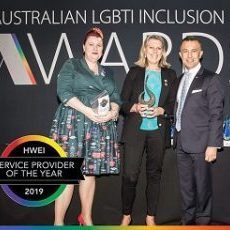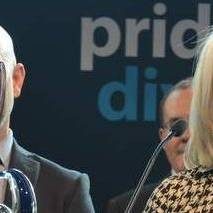
HESTA has taken a pulse check of the state of Women’s Equality in Australia and has found persisting discrimination and inequality in work and pay is leaving them with greater financial vulnerability throughout their lives.
HESTA CEO Debby Blakey said the policy change was urgently needed to ensure our mothers and daughters were not vulnerable to disadvantage and financial insecurity.
“Women face a unique set of challenges, with policy settings and the design of our super system still not recognising the specific needs of more than half the population,”
Ms Blakey said. “While it’s pleasing to see some improvement in the gender pay gap, it’s unacceptable that the gap is still 14% for full-time work. “If they continue to experience this ongoing pay discrimination, the trend of women having inadequate savings in retirement will only worsen,” said Ms Blakey.
Two key reasons women retire with, on average, 40% less super than men are unequal pay and unpaid time out of the workforce to start a family or care for others.
“We need to ensure the design of our super system is fairer for women instead of being modelled on a typical male pattern of continuous, full-time work that is increasingly not the norm for many Australians,” Ms Blakey said. “A fundamental step to ensuring greater adequacy is to lift the super guarantee to 12% as this is a legislated promise of additional retirement income all Australians have a right to expect and is crucial to boosting women’s long-term retirement savings.”
The report Vital Signs outlines the challenges experienced by the Fund’s 840,000 members, 80% of whom are women working in the health and community services sector.
The report provides a snapshot looking at work, income, education, and employment for women in Australia.
“Women, particularly those working in health and community services, often work in part-time or casual roles and are often lower paid. This perpetuates the gender pay gap, ultimately leaving them with less money in super,” Ms Blakey said. Women’s unequal experience in the workplace carries over into retirement with a median super balance held by women of $39,000. Around one-third of women aged over 15 have no super. “
After a career spent caring for others, HESTA members deserve a secure retirement and a comfortable standard of living when they age. We’re strong supporters of measures to improve the super system so women can perform these vital roles that make such an important contribution to our society and economy. They should not be penalised financially when they retire. “Women aged over 55 are the fastest-growing category of homeless persons in Australia – a shocking indicator of growing inequality,” said Ms Blakey. Vital Signs brings together the fund’s corporate social responsibility, advocacy, and responsible investment and aligns them with seven strategic UN Sustainable Development Goals (SDGs). It covers HESTA’s continuing efforts to make a positive impact through advocacy, investment, and conduct as an organisation.
“We want to have a lasting impact on the world our members retire into. We’ve brought together how we act, advocate and invest and aligned these with seven of the SDGs including gender equality to amplify the long-term impact we can have for members,” said Ms Blakey. “We think and act holistically about how we achieve sustainable returns while contributing to a healthier society and planet. This report frames our continuing efforts to make a positive impact for our members, the society and the economy.” The Vital Signs statistical portrait was developed with the assistance of the Centre for Future Work Dr. Jim Stanford, Economist, and Director of the Centre. “These statistics prove that gender inequality remains a pervasive and multi-dimensional problem in Australia,” said Dr. Jim Stanford. “Women face overlapping barriers to their full participation in work and society. Women have so much skill and productivity to offer Australia’s economy, and it’s well past time we better valued and supported their contributions.”
HESTA is a Workplace Gender Equality Agency’s (WGEA) Employer of Choice for Gender Equality and Ms Blakey has been a WGEA Pay Equity Ambassador since 2016.
The full report can be accessed here.




